SEARCH SPONSORED SCHOOLS
Not all sponsored colleges have laptop programs
FIND COLLEGES NOW!
Complete the following questionnaire and we will match you with the right schools.

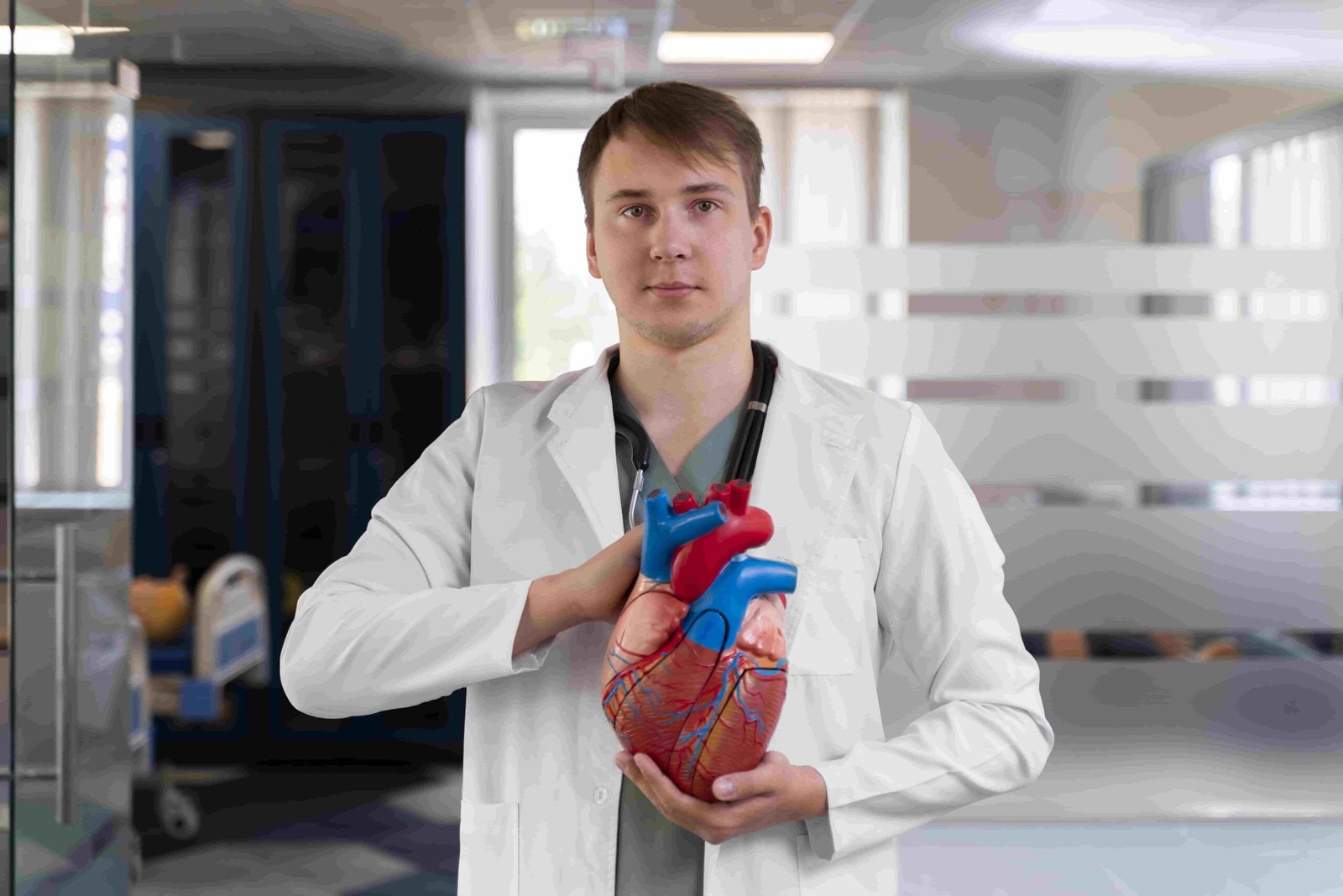
Cardiovascular Technologist and/or Technician
Occupational Prestige Score: 72.1, more than average
Employment in 2023: 10,617
What do Cardiovascular Technologists and/or Technicians do? Under the direction of a cardiologist, or heart doctor, cardiovascular technologists and technicians operate the equipment used to examine hearts and blood vessels to diagnose cardiovascular diseases. This may include performing ultrasounds or electrocardiograms (EKGs), which record the heart’s electrical signals, in hospitals, cardiology practices, or imaging centers. Cardiovascular technicians may also explain exam results to patients.
Education Needed: Cardiovascular technologists and technicians generally have an Associate Degree in Cardiovascular Technology, with some employers requiring specific certifications or 1-2 years of additional training courses.
Qualities: To operate complex machinery and capture the correct images, cardiovascular technologists must be detail-oriented with good analytical abilities. The machinery may be heavy and require physical stamina. Most patients have limited knowledge about their conditions, so strong interpersonal skills and the ability to translate the exam results into everyday language are a necessity.
Salary: The median salary of a cardiovascular technologists can be up to $66,170 yearly, or $31.81 an hour.*
Projected job growth: The Bureau of Labor Statistics predicts an increase of 10%* in employment opportunities for cardiovascular technicians, which likely relates to the increase in heart-related conditions faced by Americans in recent years.
*Salary and employment figures are based on a national average and may vary by location.

Cytogenetic Technologist
Occupational Prestige Score: 71.79, more than average
Employment in 2023: 838
What do Cytogenetic Technologists do? Some diseases are passed down genetically through the DNA we inherit from our families. Specifically, DNA and proteins form chromosomes, which contain information on whether a health issue is acquired or inherited, as well as information on exactly what’s wrong. In a lab, a cytogenetic technologist will analyze chromosomes found in specimens such as blood or bone marrow in order to diagnose genetic diseases. This work is important for understanding how to treat a wide variety of health concerns, like birth defects or cancers.
Education Needed: Aspiring cytogenetic technologists will need a Bachelor of Science in Biology, Medical Technology, Genetics, or Clinical/Medical Laboratory Science.
Qualities: Analyzing chromosomes on a microscopic level certainly requires precision, patience, and strong analytical skills.
Salary: The median salary of a cytogenetic technologist can be up to $60,780 yearly, or $37.50 an hour.*
Projected job growth: You can expect an increase in employment opportunities for cytogenetic technologists, which is hypothesized to be driven by advances in genetic testing.
*Salary and employment figures are based on a national average and may vary by location.

Diagnostic Medical Sonographer
Occupational Prestige Score: 63.6, slightly more than average
Employment in 2023: 25,162
What do Diagnostic Medical Sonographers do? Diagnostic Medical Sonographers operate ultrasound machinery, devices that use sound waves to reveal internal tissues, organs, and other structures and display the images on some sort of screen. Diagnostic medical sonographers are instrumental in helping physicians diagnose and monitor various conditions, such as pregnancy, heart disease, or cancer, by allowing them to analyze what’s inside without surgery. Diagnostic medical sonographers can work in any facility that provides diagnostic services.
Education Needed: Most diagnostic medical sonographers have earned an Associate Degree in Diagnostic Medical Sonography or Medical Technology in addition to other required medical assistant or medical sonography certifications.
Qualities: Diagnostic medical sonographers must have an advanced knowledge of anatomy, physiology, and medical terminology, which speaks to them being detail-oriented. They also must have empathy and good communication skills to be able to translate their advanced knowledge to their patients. To operate the medical machinery they must also have manual dexterity.
Salary: The median salary of a Diagnostic Medical Sonographer can be up to $84,470 yearly, or $40.61 an hour*
Projected job growth: Over the next ten years, the Bureau of Labor Statistics predicts an increase of 11.37%* in employment opportunities for diagnostic medical sonographers, which likely coincides with the expected increase in healthcare services overall.
*Salary and employment figures are based on a national average and may vary by location.

Dietetic Technician
Occupational Prestige Score: 48.81
Employment in 2023: 24,240
What do Dietetic Technicians do? Under the supervision of a registered dietitian (RD), which is distinct from a nutritionist, dietetic technicians assist in planning nutritional programs that promote health and help patients meet their nutritional goals. Dietetic technicians distribute meals in healthcare facilities, schools, and community centers, in addition to tracking calories and providing nutritional education to patients and caregivers.
Education Needed: Dietetic technicians need an associate degree in dietetics, nutrition, or a related field. Some additional certification may be required, such as a national DTR (Dietetic Technician Registered) certification.
Qualities: Dietetic technicians work directly with patients, healthcare professionals and other team members, which is why they must enjoy working with people. This helps with better patient engagement and improved communication. Additionally, they need to be organized and detailed-oriented. A dietetic technician must analyze patient information, dietary requirements, medical history and preferences to develop effective nutrition plans for patients, who often need emotional support along with dietary guidance. This means compassion is a valuable quality for dietetic technicians.
Salary: The median salary of a Dietetic Technician can be up to $36,520 yearly, or $17.56 an hour.*
Projected job growth: Steady growth expected as nutritional guidance becomes integral to preventive healthcare and treatment of diseases like diabetes.
*Salary and employment figures are based on a national average and may vary by location.

Electroneurodiagnostic Technologist
Occupational Prestige Score: 69.88, more than average
Employment in 2022: 20,900
What do Electroneurodiagnostic Technologists do? They specialize in recording and studying electrical activity in the brain and nervous system. They use specialized equipment, like electroencephalograms (EEGs) and electromyography (EMGs), to record electrical signals from the brain, nerves, and muscles. EDTs usually work in hospitals, clinics, sleep labs, and epilepsy monitoring units. They interact with patients to prepare them for tests, explain procedures, and ensure their comfort.
Education Needed: Most EDTs have an Associate’s Degree in Electroneurodiagnostic Technology (ENDT) or a related field like neuroscience or health sciences. Certification is also commonly required. with the Certified Electrodiagnostic Technologist (CET) being a widely recognized credential.
Qualities: EDTs need strong attention to detail and accuracy when performing tests and recording data. They need good communication skills to explain procedures to patients and answer their questions. Because some tests can be uncomfortable, patience and empathy are also very important.
Salary: The average salary for Electrodiagnostic Technologists can be up to $76,020 per year, or $36.55 an hour.*
Projected job growth: Growth is expected due to the increasing demand for neurological services from an aging population.
*Salary and employment figures are based on a national average and may vary by location.
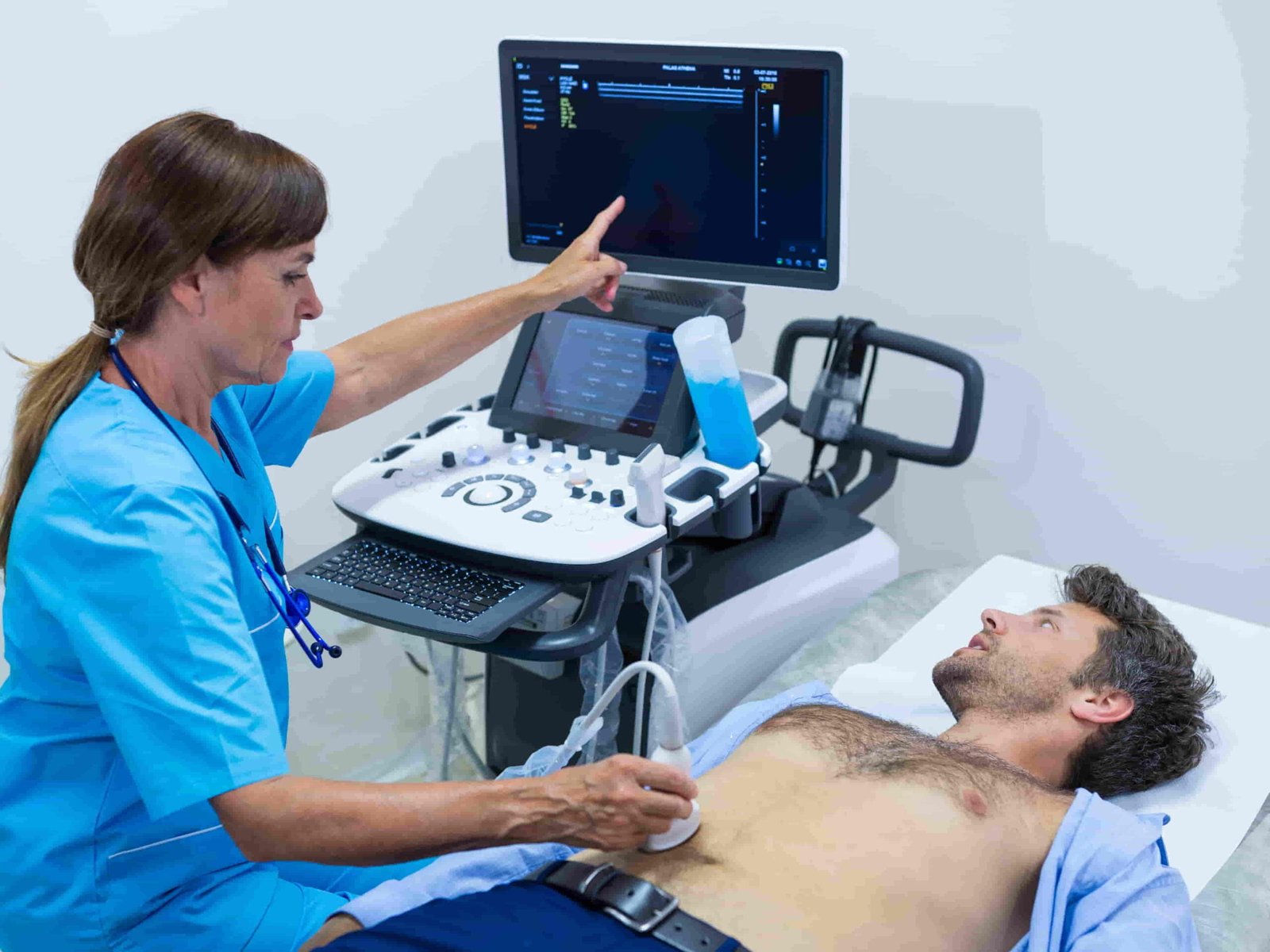
Endoscopy Technician
Occupational Prestige Score: 59.45
Employed: TBD
What do Endoscopy Technicians do? Endoscopy Technicians assist with the endoscopic examination and treatment of patients. They prepare and maintain endoscopy equipment, assist during procedures, and ensure a sterile environment.
Education Needed: Surgical assistants and technologists typically need a certificate or an associate’s degree.
Qualities: A successful endoscopy technician is detail-oriented, as even a small mistake can greatly affect procedures. The ability to work in a team and strong communication skills are valued since endoscopy technicians must be able to follow instructions and communicate effectively to ensure patients’ wellbeing.
Salary: The average salary can be up to $60,370 yearly, or $29.03 an hour.*
Projected job growth: Moderate growth expected with the increasing use of endoscopic procedures for diagnosis and treatment.
*Salary and employment figures are based on a national average and may vary by location.
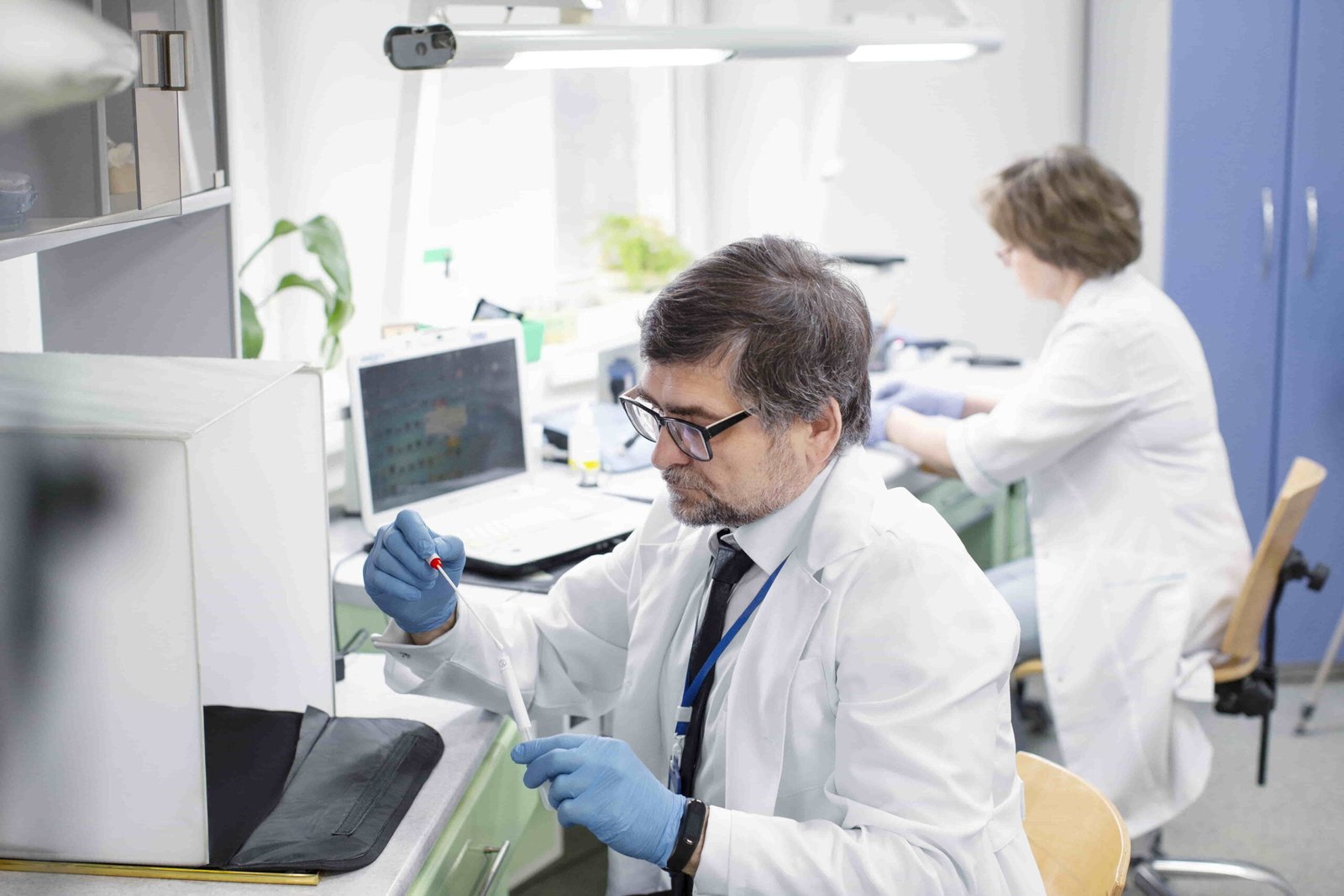
Histotechnologist and/or Histologic Technician
Occupational Prestige Score: 65.52
Employed: TBD
What do Histotechnologist and/or Histologic Technicians do? Histotechnologists and Histologic Technicians prepare tissue samples for microscopic examination by pathologists to diagnose diseases, including cancer. This involves cutting, staining, and mounting tissue sections on slides.
Education Needed: Associate degree for technicians and Bachelor’s degree for technologists; certification may be required.
Qualities: Attention to detail and patience are crucial since Histotechnologists and Histologic Technicians prepare tissue samples for microscopic examination.
Salary: The average salary can be up to $60,780 a year, or $29.22 an hour.*
Projected job growth: The Bureau of Labor Statistics projects an estimated growth of 5%* in employment in the next ten years.
*Salary and employment figures are based on a national average and may vary by location.
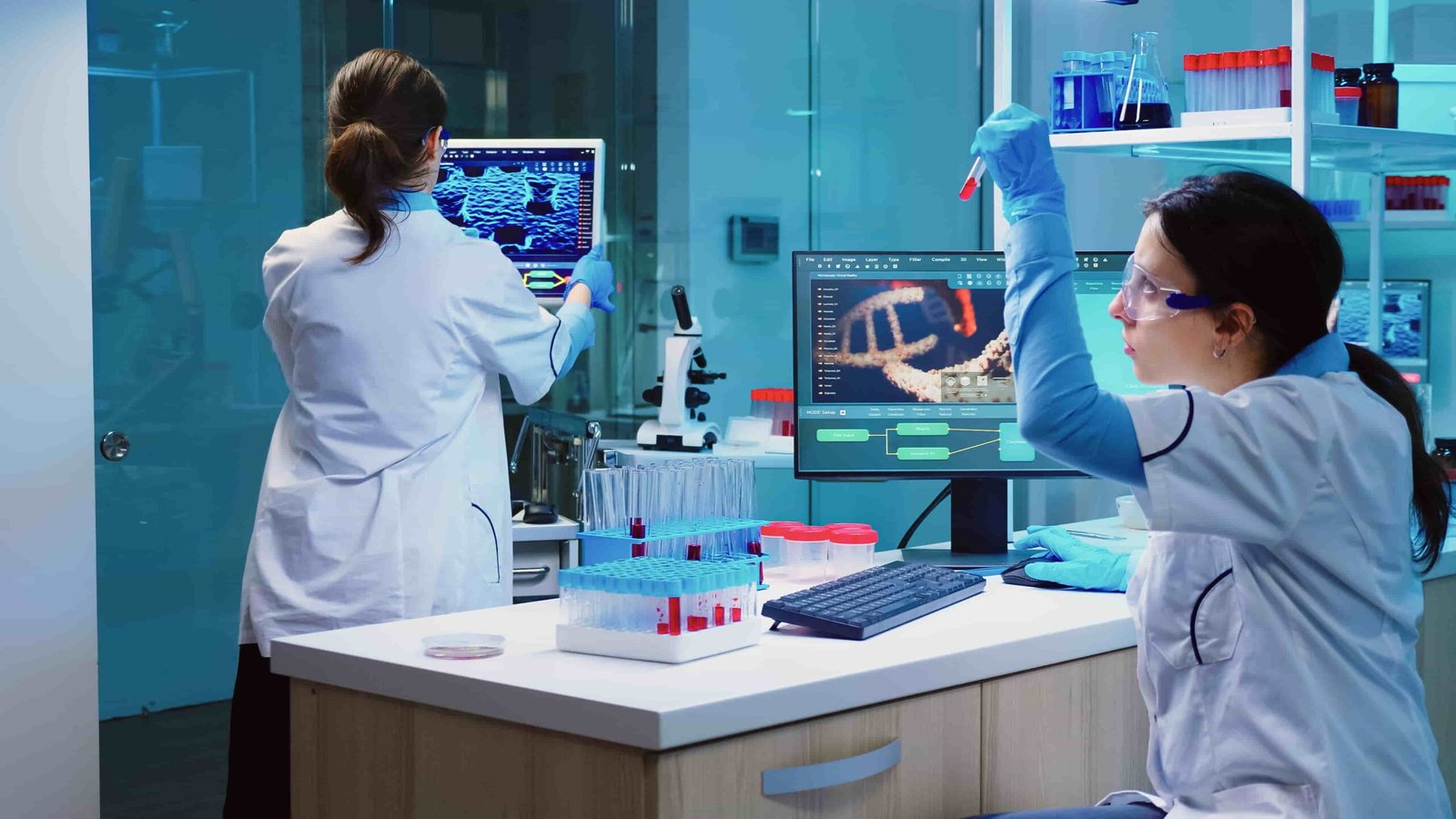
Medical and Clinical Laboratory Technician and/or Technologist
Occupational Prestige Score: 67.5
Employment in 2022: 342,900
What do Medical and Clinical Laboratory Technicians and Technologists do? Medical and Clinical Laboratory Technicians and Technologists analyze body fluid, tissues, and other samples to diagnose and monitor diseases. These professionals perform tests using sophisticated equipment to measure substances like blood sugar, hormones, white blood cells, etc. Technologists conduct more complex tests and analyses than technicians, but results will always play a crucial role in helping physicians make treatment decisions.
Education Needed: Technologists typically hold a Bachelor’s Degree in Medical Technology or a related scientific field with certification, and perform more complex procedures. Technicians often have an Associate’s Degree in Medical Laboratory Technology or a related field and assist technologists or perform more routine tasks.
Qualities: Both professionals need a combination of precision, problem-solving and teamwork. Because of the importance of the tests they perform, attention to detail and accuracy are paramount. Especially since even minor mistakes in test results can significantly impact patient diagnosis and treatment. Strong analytical skills are crucial for interpreting complex data and identifying potential abnormalities, and while they must be able to work independently, they also need to be able to collaborate effectively.
Salary: The median salary for clinical laboratory technologists and technicians can be up to $60,780 yearly, or $29.22 an hour.*
Projected job growth: The Bureau of Labor Statistics projects an increase of 5%* in employment in the next ten years. This may be the result from the need to replace workers who transfer to different occupations or exit the labor force.
*Salary and employment figures are based on a national average and may vary by location.

Nuclear Medicine Technologist
Occupational Prestige Score: 77.85
Employment in 2022: 18,100
What do Nuclear Medicine Technologists do? Nuclear Medicine Technologists use radioactive drugs to diagnose and treat diseases. They prepare and administer radiopharmaceuticals, which are specialized medications containing small amount of radioactive isotopes, that target specific organs or tissues in the body depending on the diagnostic test or treatment being performed. NMTs also perform imaging procedures, and ensure the safety and comfort of patients. They play a crucial role in quality control by performing regular checks on imaging equipment to ensure accurate results, plus maintain detailed records of procedures and patient data. Most Nuclear Medicine Technologists work in hospitals, but some may work in physicians’ offices, laboratories or imaging clinics.
Education Needed: Nuclear Medicine Technologists usually need an Associate’s Degree from an accredited nuclear medicina technology program. Most nuclear medicine technologists become certified, and some must be licensed.
Qualities: Nuclear Medicine Technologists require a specific set of skills. They need to be extremely detailed-oriented when handling radioactive materials, making sure they mesure precise dosages and follow safety protocols. Empathy and clear communication is needed, as some patients can be anxious about radiation and Nuclear Medicine Technologists will need to take their time in explaining how everything works. The equipment used also means Nuclear Medicine Technologists need strong technical skills.
Salary: The median salary for Nuclear Medicine Technologists can be up to $92,500 yearly, or $44.47 an hour.*
Projected job growth: The Bureau of Labor Statistics projects a 0% increase* in the next ten years. Despite small to no employment growth, the Bureau states there are about 800 opening for nuclear medicine technologists projected each year on average over the decade.
*Salary and employment figures are based on a national average and may vary by location.

Occupational Health and Safety Technician
Occupational Prestige Score: 56.81
Employment in 2022: 138,400
What do Occupational Health and Safety Technicians do? Occupational Health and Safety Technicians play a crucial role in safeguarding the well-being of workers in various industries. They gather information on workplace hazards through testing and inspections, measuring things like air quality and noise levels. Occupational Health and Safety Technicians help implement safety programs, train workers on protective gear, and work with specialists to identify and address risks. They contribute to safe work environments by meticulously maintaining records and reports. Work environment can vary from indoor to outdoor settings.
Education Needed: Typically, Occupational Health and Safety Technicians need a Bachelor’s Degree in Occupational Health and Safety or a related field. However, you can enter the field through a combination of on-the-job training and education, with specific requirements varying on the employer. Experience in safety protocols and procedures gained through military service can be valuable for Occupational Health and Safety Technician roles.
Qualities: Occupational Health and Safety Technicians must be extremely detail-oriented and meticulous to ensure accuracy in data collection to safeguard worker health. Problem solving skills are important for identifying potential safety risks, and teamwork is needed to collaborate with specialists to implement solutions.
Salary: The median pay for Occupational Health and Safety Technicians can be up to $57,920 yearly, or $27.85 an hour.*
Projected job growth: The Bureau of Labor Statistics projects an increase of 13%* in employment in the next ten years, much faster and more than average.
*Salary and employment figures are based on a national average and may vary by location.

Ophthalmic Medical Technologist and/or Technician
Occupational Prestige Score: 61.38
Employment in 2023: 73,390
What do Ophthalmic Medical Technologist and/or Technicians do? Ophthalmic Medical professionals assist eye doctors (ophthalmologists). Technicians, with Associate’s Degrees, typically help with patient intake, exam preparation and basic vision tests. Technologists, with Bachelor’s Degrees, have broader roles. They take medical histories, perform advanced vision test, operate equipment, and even assist in minor surgeries. Both of these professionals contribute to quality eye care.
Education Needed: To become a technician, the most common educational pathway is an Associate’s Degree in Ophthalmic Technology or a related medical field. While some employers may accept candidates with a high school diploma and on-the-job-training, an Associate’s Degree is increasingly preferred. For technologists, a Bachelor’s Degree is typically required. This degree can be in Ophthalmic Technology or a related scientific field like biology or pre-med. Additionally, both technicians and technologists may need to complete certification programs to demonstrate their competency and knowledge.
Qualities: Ophthalmic Medical professionals need excellent communication, as it is key to explaining procedures clearly, calming patients’ anxieties and effectively collaborating with ophthalmologists. Patience and empathy go a long way when interacting with clients, especially during eye examinations that can be uncomfortable. Detail-oriented record keeping contributes to quality care, and organizational skills allows them to manage patient flow, administrative duties and other daily tasks. Overall, technicians and technologists work in a patient-centered environment that thrives from people skills and trust.
Salary: The median pay for Ophthalmic Medical Technicians can be up to $41,780 yearly, or $20.09 an hour.*
Projected job growth: Though the Bureau of Labor Statistics predicts little to no growth*, a slight growth could expected due to the population requiring more eye care services.
*Salary and employment figures are based on a national average and may vary by location.

Pharmacy Technician
Occupational Prestige Score: 56.07
Employment in 2022: 459,600
What do Pharmacy Technicians do? Pharmacy Technicians work alongside pharmacists to ensure smooth medication dispensing. They process prescriptions by carefully measuring, packaging, and labeling medications.
Education Needed: Pharmacy technicians usually need a high school diploma or equivalent and learn their duties with on-the-job training. They can also complete a postsecondary education program in pharmacy technology. Most states also regulate pharmacy technicians, which means they may need to pass an exam or complete a formal education or training program.
Qualities: A great pharmacy technician is a successful multitasker. Most important is accuracy and attention to detail, as even a small mistake in medication processing can have serious consequences. Good communication skills are helpful when interacting with clients.
Salary: The median pay for Pharmacy Technicians can be up to $40,300 yearly, or $19.37 an hour.*
Projected job growth: The Bureau of Labor Statistics projects an increase of 6%* in employment in the next ten years.
*Salary and employment figures are based on a national average and may vary by location.

Psychiatric Technician
Occupational Prestige Score: 57.95
Employment in 2023: 115,940
What do Psychiatric Technicians do? Psychiatric Technicians care for individuals with mental illness or developmental disabilities. They provide therapeutic care, monitor patients’ conditions, assist in daily activities, and administer medications under the direction of psychiatric staff.
Education Needed: To become a psychiatric technician, you typically need a postsecondary certificate or associate degree in psychiatric or mental health technology. A licensure may be required in some states.
Qualities: Psychiatric technicians work with people experiencing mental health challenges, some patients are in their darkest days. That means that compassion and patience are key to building trust and rapport with patients who may be feeling vulnerable or scared. Psychiatric technicians need to be able to actively listen and (sometimes) de-escalate situations, so strong communication skills are definitely needed for the job. Resilience is also essential since they handle stressful situations and emotional weight that can sometimes come when supporting individuals facing mental health struggles.
Salary: The median pay for Psychiatric Technicians can be up to $39,700 yearly, or $19.09 an hour.*
Projected job growth: The Bureau of Labor Statistics projects an increase of 9%* in employment in the next ten years. Many of these opening come from the rising need for mental health workers, as well as mental health awareness and increased demand for psychiatric care.
*Salary and employment figures are based on a national average and may vary by location.

Radiologic Technologist and/or Technician
Occupational Prestige Score: 63.16
Employment in 2023: 221,170
What do Radiologic Technologists and Technicians do? Radiologic Technologists and Technicians perform diagnostic imaging examinations, such as X-rays, on patients. They also administer nonradioactive materials into the patient’s bloodstream for diagnostic purposes. Technologists might specialize in certain types of imaging techniques and perform a wider range of tasks, which include operating equipment and ensuring patient safety.
Education Needed: Usually, radiologic technologists need an Associate’s Degree. Some, if not most, states additionally require radiologic technologists to be licensed or certified, plus, employers may prefer to hire technologists that are certified.
Qualities: Since radiologic technologists and technicians operate complex imaging equipment, technical proficiency is a must for the job. Meticulous attention to detail helps ensure accurate patient positioning and proper equipment setting, which are both crucial for clear images. Like most healthcare workers, radiologic technologists and technicians must have empathy for their patients in order to calm their anxieties and fears.
Salary: The median salary for radiologic technologists and technicianscan be up to $73,410 yearly, or $35.29 an hour.*
Projected job growth: The Bureau of Labor Statistics projects an increase of 6%* in employment in the next ten years.
*Salary and employment figures are based on a national average and may vary by location.
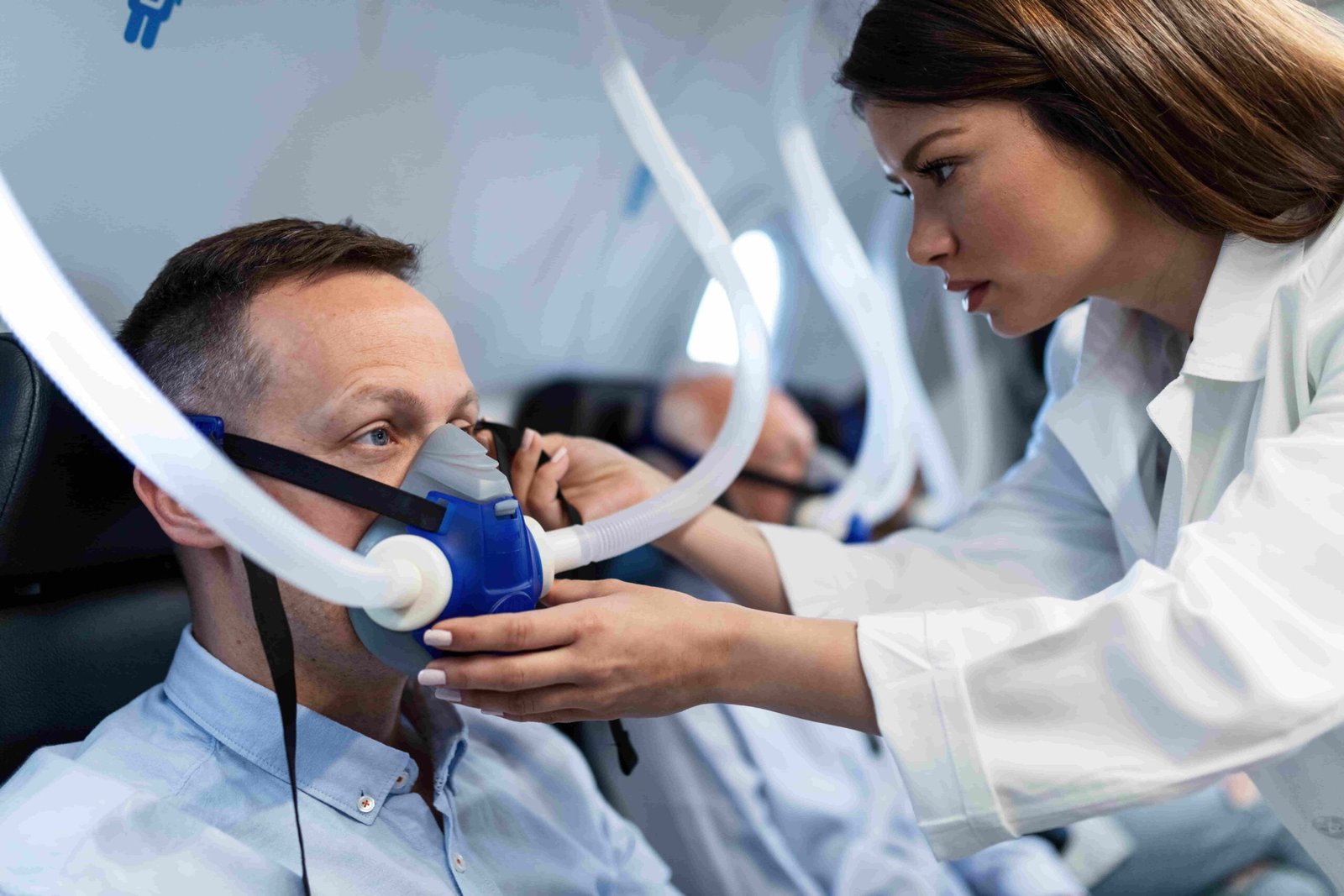
Respiratory Therapy Technician
Occupational Prestige Score: 63.85
Employment in 2022: 133,100
What do Respiratory Therapy Technicians do? Respiratory Therapy Technicians assist physicians and therapist in taking care for patients with breathing difficulties and/or other cardiopulmonary issues. Everyday tasks may include administering breathing treatments, performing diagnostic tests, and educating patients on how to use equipment to manage their conditions.
Education Needed: To become a respiratory therapy technician you will need an Associate’s Degree in respiratory therapy or related field. Depending on employers, additional certification may be required.
Qualities: Technical skills are extremely important, that is proficiency in operating equipment like nebulizers, ventilators and monitoring devices. Meticulousness and attention to detail is crucial for accurate medication administration and equipment calibration. Because the job may involve lifting patients or equipment, moderate physical strength and physical stamina is needed for the job. Additionally, the ability to identify potential issues with equipment or patient responses and react accordingly makes a good respiratory therapy technician.
Salary: The median salary can be up to $77,960 per year, or $37.48 an hour.*
Projected number of jobs: The Bureau of Labor Statistics projects an increase of 13%* in employment in the next ten years. This is much more than average and likely due to an increase in the aging population and the increase in respiratory conditions such as COPD.
*Salary and employment figures are based on a national average and may vary by location.

Veterinary Technologist and/or Technician
Occupational Prestige Score: 60.91, more than average
Employment in 2022: 122,900
What do Veterinary Technologists and Technicians do? Veterinary Technologists and Technicians perform medical tests under the supervision of a licensed veterinarian to diagnose the illnesses and injuries of animals. While their duties overlap sometimes, there’s some differences in their responsibilities. Veterinary technicians may assist veterinarians with tasks such as laboratory procedures, adminsetering anesthesia and positioning animals for X-rays, administering medications and vaccinations, and educating pet owners on pet care, nutrition and medication use. Veterinary technicians perform all of the above tasks, but may also be qualified to perform a wider range of complex laboratory analyses, and assist vets in surgical procedures by sterilizing instruments and preparing surgical sites. Some technologists may specialize in areas like anesthesia, dentistry or emergency care.
Education Needed: Veterinary technologists and technicians must complete a postsecondary program in veterinary technology. Technologists usually need a 4-year Bachelor’s Degree, while Technicians need a 2-year Associate’s Degree. Depending on the state requirements, both must take an exam and become registered, licensed or certified.
Qualities: A love for animals is definitely the foundation for veterinary technicians and technologists, but their success relies in additional qualities. They must be detail-oriented in order to achieve accurate medication dosages, lab analyses, and ensure animal safety during procedures. Emotional resilience is crucial as they deal with sick and injured animals, which can sometimes be emotionally challenging. Strong communication skills are a must in order to explain procedures to pet owners, answer pet owner questions and ease their anxieties, as well as to collaborate effectively with vets and ensure optimal animal care.
Salary: The median salary can be up to $43,740 yearly, or $21.03 an hour.*
Projected job growth: The Bureau of Labor Statistics projects an outstanding increase of 21%* in employment in the next ten years, much higher than average. This significant growth is explained by the increase in pet ownership, the awareness of animals help with mental health, and the demand for veterinary services.
